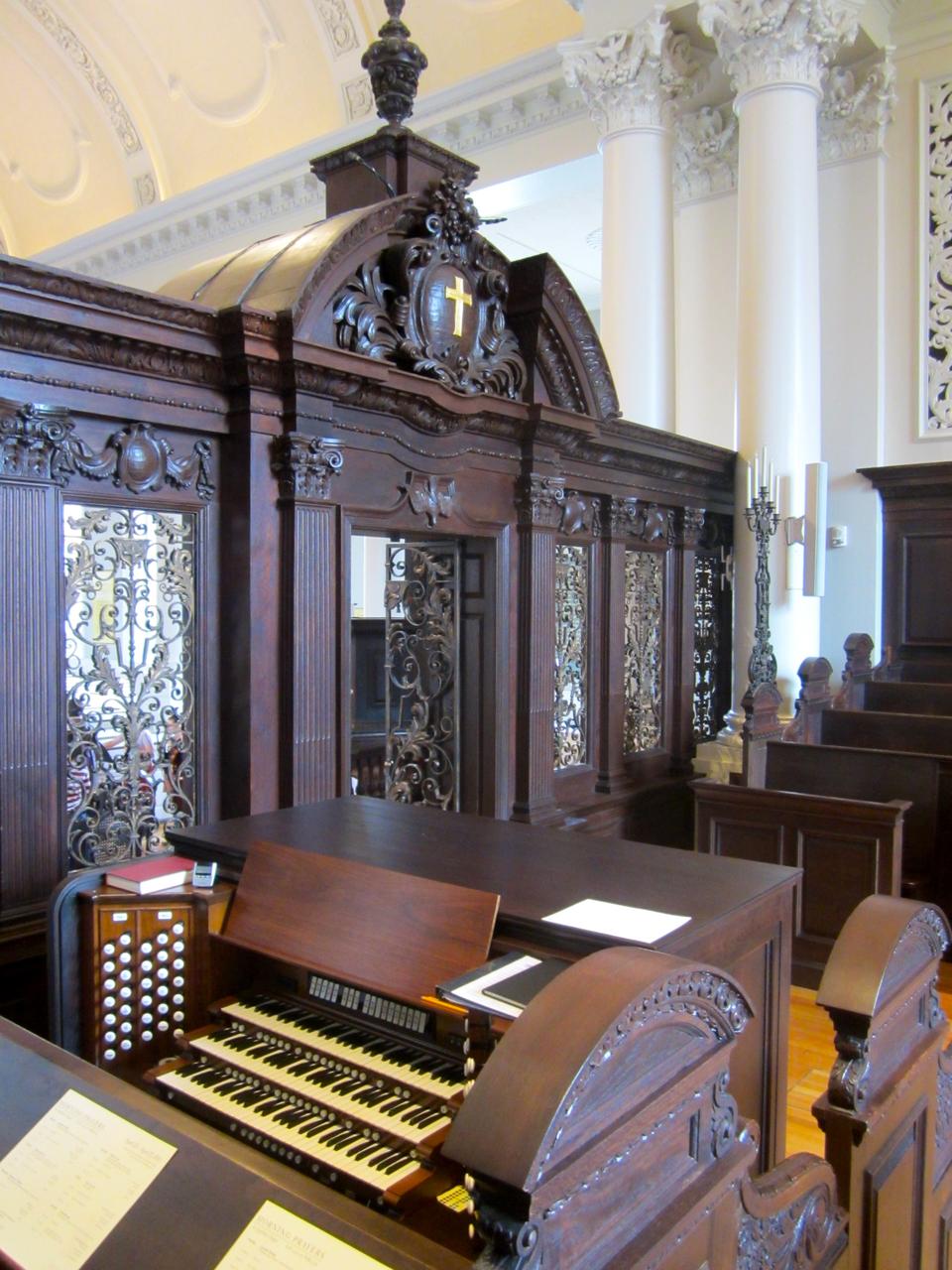
Compline
Compline: root, Latin: complentorium; the completion of a working day. The chapel opens its mouth to believers, flinging open its cavernous sanctuary to usher in the night and its children for worship. And the children come: faces glowing and slanted down, boots knocking on the wooden floor with each step.
"All having assembled in one place, let them say Compline," Saint Benedict decreed in the sixth century, his white beard frothy around his neck. And then Compline became ritual: a time of contemplation and meditation before sleep. It continued through the years. Through the invention of playing cards, the compass, eyeglasses, and moveable type, pious monks would come together at night, all over the world, for reflective observation before “the great silence” of rest. Leaving Compline, they would not speak until Lauds, the early morning worship service.
Compline is a twilight ritual, the final service in the Christian canonical hours. Though the ritual is ancient, Harvard’s Compline worshippers are young, students fleshy and wide-eyed; even the minister has an acne-scarred chin and bouncy bobbed hair.
“The Lord Almighty grant us a quiet night and a perfect end,” she reads. Then the choir sings across the room’s hush. Their mouths are round as they release pure, folding, floating song up into the night, letting it reverberate and circulate like convection currents below the high ceiling.
Compline service is for singing and psalms, one short reading, a response. Twelve University Choir members face each other in opposing pews as they sing, tall candles elucidating the spiny notes of their score. The candles lean into the singers so that the flames flutter with each gasp of breath. My own candle, teetering in my closed fist, wears a cardboard tutu to protect my fingers from droplets of wax. Its tiny speck of light illuminates the church’s darkness: the mahogany paneling, the wide pulpit, the white plaster and rectangle molding of the ceiling.
Appleton Chapel, tucked in the back of Memorial Church, was constructed in 1932. Even though Harvard was founded before Newton derived his laws of motion, before French commoners stormed the Bastille, its iconic church steeple is younger than my grandfather. We worshippers are children playing at games for grown ups, questioning the spirit, mortality, and cosmic time—or, at least, trying to. “Love is strong as death,” the choir sings. “Many waters cannot quench love; neither can the floods drown it.”
I hold the narrow candle I was given when I entered the chapel and watch a dab of plasma dance on its comma-shaped wick. As it grooves and jumps, I wonder: What makes a flame flicker, even when the universe is still? Plasma has a particular energy, an inspired one. Its movement must come from somewhere.
“Lord, please give them the grace to know what is worth knowing, give them wisdom to see beneath the surface of things,” the minister whistles, blinking down on our bowed heads. Her voice is fresh and vulnerable. Beside the pulpit, white lilies branch from their necks, opening their petals in cone-shaped attention.
She reads the names of friends of Harvard who have died in the past week: a professor, an alumna. I imagine the names that have fallen from lips here through the decades, the ones that the curve of lips will utter in future months and years and years.
Lips swirl in calculated, beautiful motion on the faces of the choir singers, on my own face as I mouth along to the hymn “Abide with Me, Fast Falls the Eventide.”
The Lord be with you, and with thy spirit. "Take my yoke upon you and learn from me; for I am gentle and lowly in heart, and you will find rest in your souls."


